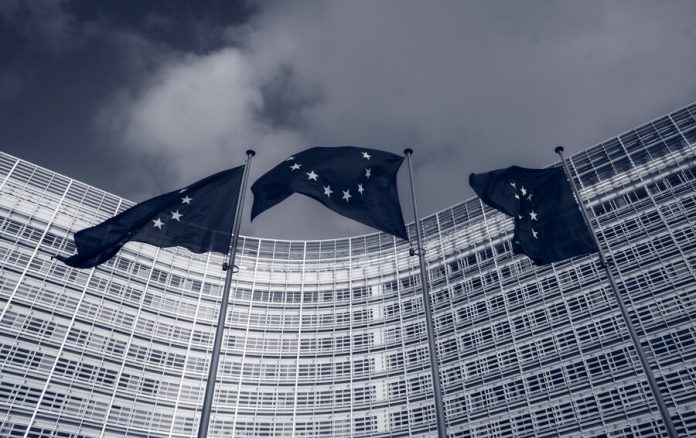
Huawei has dismissed two employees and suspended a third over their potential participation in the European Parliament’s latest corruption scandal. While these workers’ identities remain undisclosed, a Huawei lobbyist, senior executive and procurement manager were among the first suspects to face Belgian court hearings in early April. Days later, Belgium’s public prosecutor charged eight individuals for corruption and money laundering following a series of mid-March police raids.
According to Belgian prosecutors, Huawei’s alleged corruption scheme has been carried out “very discreetly” since 2021, reportedly involving payments for political influence, lavish gifts and football match invitations believed to have secured parliamentary support for Huawei’s interests. Central to the probe is whether bribes were used to engineer parliamentary support for a pro-Huawei open letter signed by eight MEPs.
Following the EP’s ‘Qatargate’ cash-for-influence scandal in 2022, the Huawei affair exposes Brussels’s persistent failure to bolster its porous transparency regime. With both foreign and European private companies knowingly exploiting this critical vulnerability to advance their commercial interests at the expense of EU citizens, the Commission and EP must ramp up efforts to reverse this deeply-concerning trend.
EU transparency overhaul: dead on arrival?
Reflecting on the Huawei scandal, Nicholas Aiossa, a Transparency International EU director, has rightly decried how “these new allegations…make a mockery of democracy” in the EP, adding that “swift, wide-ranging and substantial ethics reform” is needed “to protect the integrity of the Parliament.
Bemoaning a “not again” moment, German MEP Daniel Freund has already answered this call, co-signing, along with fellow Anti-Corruption Intergroup co-chair Chloé Ridel and nearly 50 other MEPs, a letter to EP President Roberta Metsola demanding robust transparency action in the wake of Huaweigate. Freund has recently asserted that while the EU has implemented certain post-Qatargate anti-corruption reforms, key measures are “still stalling,” with a far-right-led MEP contingent even pushing to roll back recent transparency safeguards. This bloc – which concerningly includes MEPs from Metsola’s centre-right EPP – is notably impeding the creation of a common Ethics Body to hold lawmakers accountable with independent oversight.
Despite mounting calls for reform, the EPP appears determined to bury the EU’s proposed Ethics Body, once hailed as the centrepiece of post-Qatargate transparency efforts. Backed by far-right allies, the EPP recently voted to scrap the body’s modest €110,000 budget, effectively sabotaging its launch. Ironically, it was Roberta Metsola who initially championed the Ethics Body as part of a 14-point reform plan she unveiled in 2023, promising greater transparency, conflict-of-interest safeguards and whistleblower training.
Brussels’s growing chain of scandals
Yet, less than two years on, the EP President appears unable to rein in her party amid its unfolding rightward lurch – a situation which bodes poorly after years of successive scandals in the EU’s legislative and executive bodies.
Concerning the former, the Huawei case held the EU corruption media spotlight for less than a month before France’s far-right ‘Rassemblement National’ (RN) leader Marine le Pen was dealt a bombshell conviction on 31 March for embezzling millions in EP funds. True to their increasingly blatant anti-transparency stance, Le Pen’s ideological allies across the EU have portrayed her as a victim of undemocratic “lawfare.” However, these protests hold little water with Europe’s transparency experts, who view the Le Pen embezzlement case as “exceptional” in “sheer scope,” and broadly reflective of the EP’s woefully inadequate spending oversight.
Meanwhile, the European Commission has been no stranger to controversy, with President Ursula von der Leyen under ongoing investigation by the European Public Prosecutor’s Office (EPPO) over the ‘Pfizergate’ scandal. Led by European Chief Prosecutor Laura Kövesi, the EPPO has inherited the initial Belgian prosecutors’ probe from 2023 examining potential criminal corruption, abuse of power and destruction of SMS evidence pertaining to von der Leyen’s alleged secretive vaccine deal talks with Pfizer CEO Albert Bourla ahead of the EU’s largest Covid-19 vaccine contract – which went ahead without EP oversight.
Postponed until after the 2024 European elections to avoid possible voter “interference,” there have been no updates on Von der Leyen’s trial nearly a year later, while the Commission’s lack of transparency concerning the investigation speaks volumes on its culture of silence.
Dentsu Tracking’s under-the-radar support of Big Tobacco
The von der Leyen Commission’s culture of secrecy and top-down power wielding has notably facilitated a Big Tobacco lobbying scandal that warrants the EPPO’s attention as a case widely regarded as involving the misappropriation of EU funds. After a period of intense tobacco industry lobbying, the EU executive launched its anti-illicit trade tobacco traceability scheme in 2019, granting Swiss firm Dentsu Tracking a lucrative contract as one of the system’s core operators without a public tender/
During their tenure as MEPs, France’s Anne-Sophie Pelletier and the late Michèle Rivasi initiated the EP’s growing scrutiny of Dentsu’s dubiously-awarded role in EU track and trace. The Commission has notably claimed that Dentsu’s initial contract and renewal in 2023 were not subject to normal procurement rules as the company does not receive EU funds – a claim refuted by publicly-available evidence. Yet, these problematic Dentsu-Commission relations run much deeper than contract procedure.
Last year, Pelletier produced a White Paper along with fellow MEPs and civil society tobacco control experts highlighting the links between Dentsu Tracking, the tobacco lobby and the Commission. Crucially, Dentsu has inherited elements of Philip Morris International’s discredited Codentify system via its acquisition of co-developer, Blue Infinity, while the company failed to register in the EU Transparency Register during its six years of Commission lobbying until forced to do so in March 2024 amid sustained MEP pressure. So, who could Dentsu’s representatives have met under cover of darkness?
One answer could be Jan Hoffman, a former Commission official responsible for tobacco traceability, who suspiciously joined Dentsu as Director of Regulatory Affairs and Compliance soon after the firm secured its contract, raising serious conflict-of-interest concerns flagged in the White Paper. This scandal, combined with the quiet reshuffling and demotion of DG SANTE staff – including Hoffman’s former boss Filip Borkowski, a former deputy head of unit who suddenly and without explanation became a case handler in a different Directorate-General – following the backlash, points to a system where corporate access quietly circumvents public scrutiny.
The result of this ‘Dentsugate’? A traceability regime “tailor-made” for tobacco giants and their profits that violates WHO FCTC Protocol’s tobacco industry independence requirements and fails to curb the EU’s rising illicit trade.
Time for change running short
Hardly incidental, the Dentsu-Hoffman affair reflects systemic EU governance flaws that powerful corporate actors like Huawei, Philip Morris International and Pfizer continue to exploit with ease.
With Brussels seemingly learning nothing from past scandals, this fresh opportunity to take action must not be squandered. As Corporate Europe Observatory has rightly advocated, the EU must progress the long-awaited, far-right-hindered common Ethics Body, while bolstering enforcement of online disclosures concerning MEPs meetings with lobbyists and capitalising on the upcoming review of the weak, voluntary EU Transparency Register to impose legally-binding rules capable of preventing future abuses.
Moving forward, expressing outrage after each crisis will no longer suffice – the Commission and Parliament must urgently strengthen transparency and oversight mechanisms before the next scandal renders reform not just overdue, but definitively too late.




































